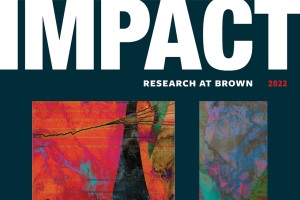Professor of Environmental Studies Laurence Smith, right, and UCLA graduate student Lincoln Pitcher set up time-lapse cameras to track ocean-going Greenland Ice Sheet meltwater runoff entering the Isortoq River in SW Greenland. Photo courtesy of Laurence Smith.
Brown researchers turn up the heat on climate change solutions
From researching the history of Indigenous land stewardship to developing nonpartisan policy ideas, collaborative scholarship at Brown aims to overcome obstacles to meaningful action on climate change.
PROVIDENCE, R.I. [Brown University] — As extreme storms, floods, wildfires, droughts and heat waves from the warming Earth continue to wreak havoc and heartache around the world, Brown has intensified its focus on climate change through solutions-focused research, innovative teaching and creative collaborations that transcend disciplinary boundaries.
“There are a lot of people at Brown putting this problem front and center, because climate change is the great global challenge of our time,” said Jeff Colgan, an associate professor of political science and director of Brown’s Climate Solutions Lab.
Climate change investigations at Brown are happening throughout the natural sciences, social sciences, and humanities. From developing catalysts that could help recycle atmospheric carbon dioxide to uncovering industry tactics that thwart climate action, faculty, students, and staff are working on ways to help us understand, adapt to and mitigate the potentially catastrophic effects of climate change, which will impact every region on the planet and take a disproportionate toll on the world’s most disadvantaged communities.
Shifting icescapes
No region is heating up faster than the Arctic, and Brown researchers associated with the Institute at Brown for Environment and Society (IBES) are examining the rapid social, economic, geopolitical and environmental changes underway there.
Climate science and policy expert Amanda Lynch, professor of environmental studies and earth, environmental, and planetary sciences, is studying the ramifications of melting sea ice in the Arctic, a region that has captured her attention for decades.
The retreating ice threatens hunting and fishing by Indigenous and traditional non-Indigenous communities, but it also expands opportunities for industry — such as international shipping routes and natural resources mining — in this once-impassable part of the globe.
“I’m thinking a lot about the way in which the loss of ice is driving aspirations and expectations for human activities in the Arctic and what that means for the people who live there, the global climate, and geopolitics,” Lynch said.
The process of ice loss is complex. Scientists have a good handle on how an ice-free Arctic will look around the year 2100, Lynch said, “but getting from here to there is really hard. The ice doesn’t retreat cleanly.”
Six Brown undergraduates witnessed these processes firsthand with Lynch on a memorable Winter Session trip to Norway’s Arctic coast with students and faculty from two other universities.
Working in 24/7 darkness, the group met people on the front lines of climate change, from traditional fishers to town planners to cruise ship operators, and conducted research on climate change’s effects on six Arctic nations. “They saw that the Arctic is not just polar bears on ice floes,” Lynch said.
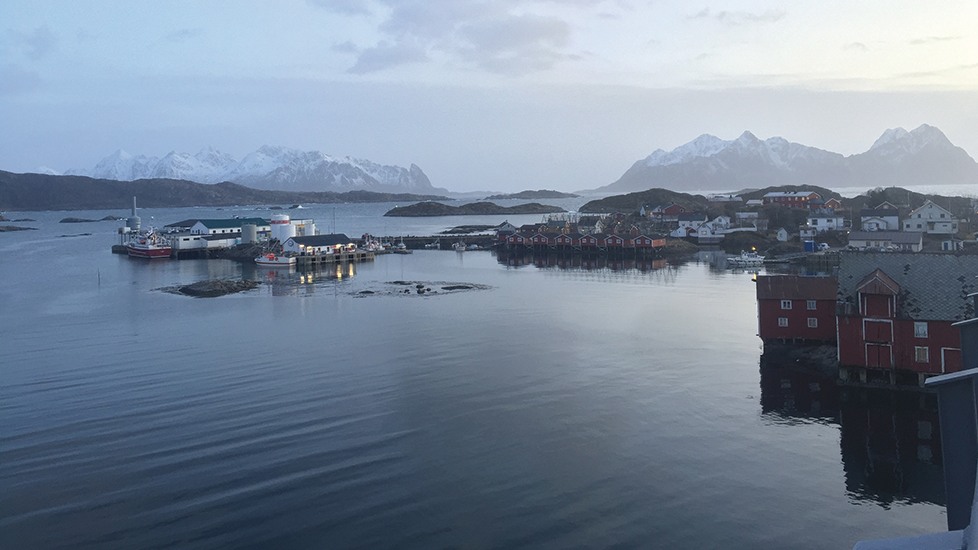
View from Svolvær on the Lofoten Peninsula in Norway, where students met with traditional fishers to learn the impact of hydrocarbon exploration on fish populations. Photos courtesy of Amanda Lynch.
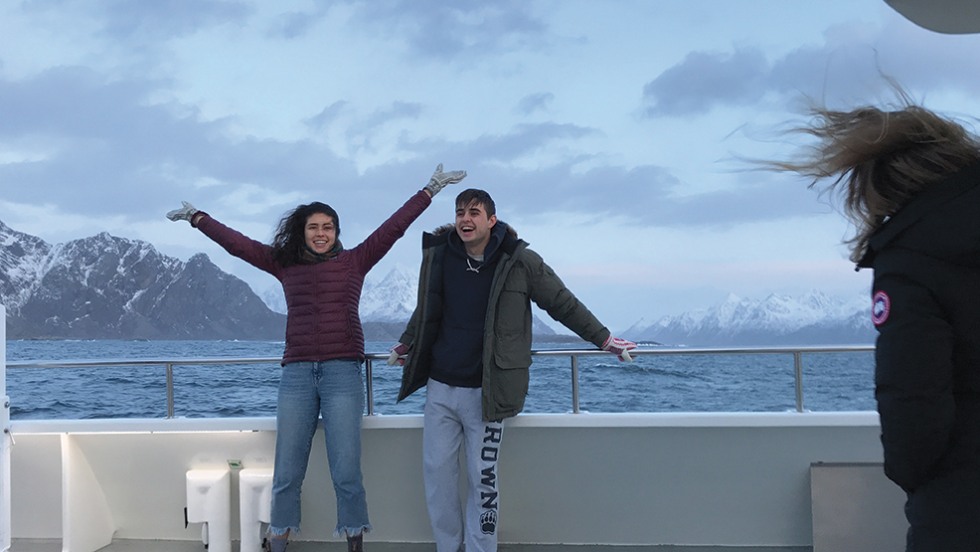
Brown students Chiara Wadsworth Arellano and Kimber Brain aboard a ship in Norway.
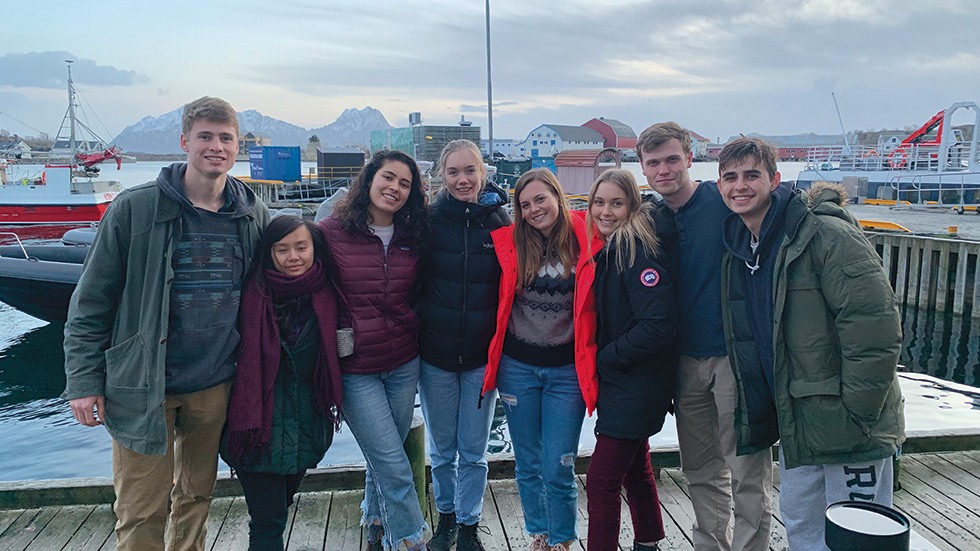
Undergraduate students from Brown University participated in a Winter Session trip to Norway’s Arctic coast with students and faculty from two other universities.
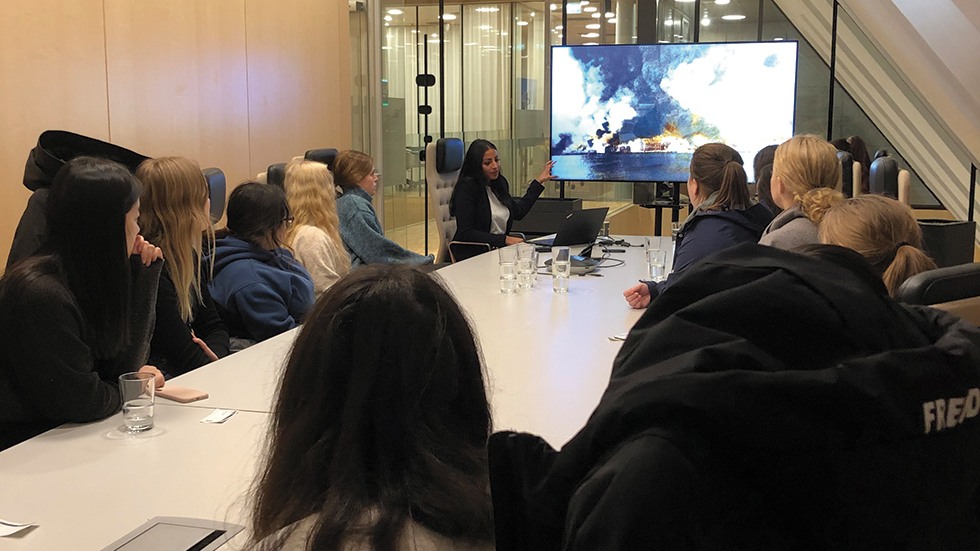
Staff from Bodø Municipality in Norway discuss the withdrawal of the NATO airbase from the city and their ideas to create a low-emissions city development pathway.
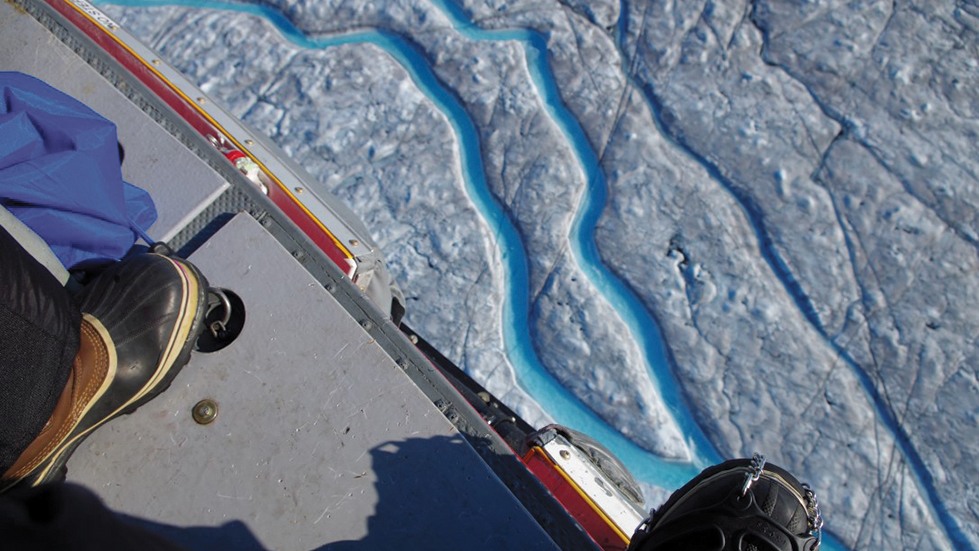
A researcher collects images and surface topography measurements from a helicopter as part of Smith's work in the Arctic. Photos courtesy of Laurence Smith.
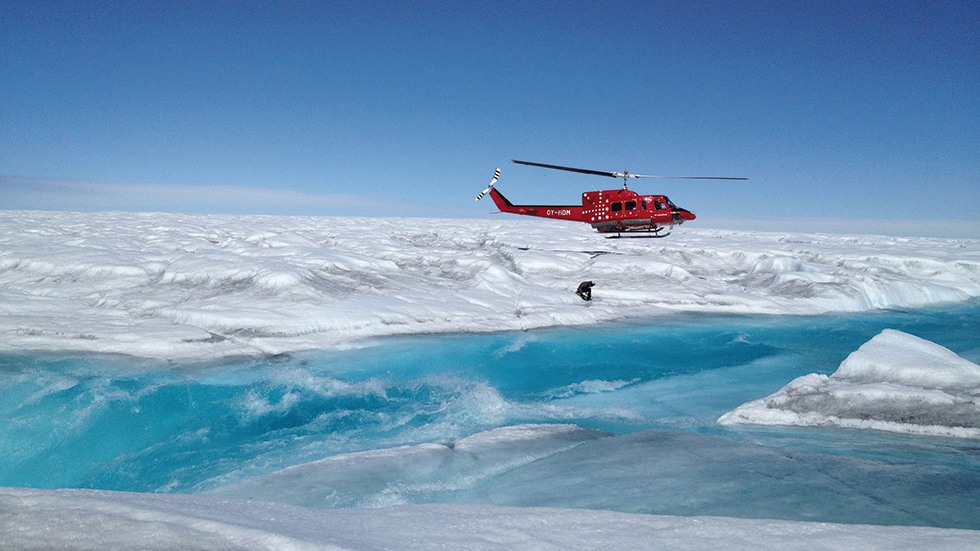
A helicopter departs, leaving Brown researchers and equipment to conduct water studies in the Arctic.
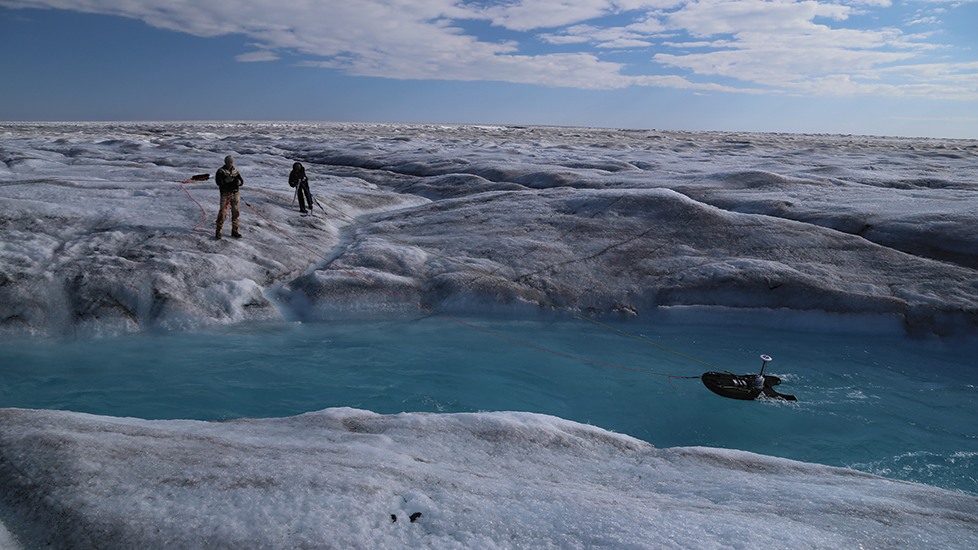
Researchers sample the water volume of a glacier river that catches surface meltwater.
Lynch and water specialist Laurence C. Smith, a fellow professor of environmental studies and earth, environmental, and planetary sciences, are now co-leading a five-year, multi-institution project with National Science Foundation funding to gather data on hotspots of emerging development in the Arctic (like the port town of Kirkenes in northern Norway) and to assess how that development may affect the Arctic environment and its people.
Smith’s Arctic research also involves deploying remote sensing technology (such as satellites and drones) and cutting-edge fieldwork to study surface water dynamics.
His team pioneered techniques for measuring how quickly water is flowing off the Greenland ice sheet — a major contributor to global sea level rise — using a sophisticated radar device that the scientists, on the slippery banks of a glacial “river,” painstakingly draw back and forth across the raging waters. Their treacherous missions have revealed that virtually all the melting ice is lost to the ocean.
Histories of change
Environmental historian Bathsheba Demuth studies the Russian and North American Arctic to illuminate the relationships between humans, societies, and nature. Her deep connection to the Arctic began at age 18, when she moved from her Iowa hometown to a remote Indigenous village in the Yukon for a life-changing gap experience before college.
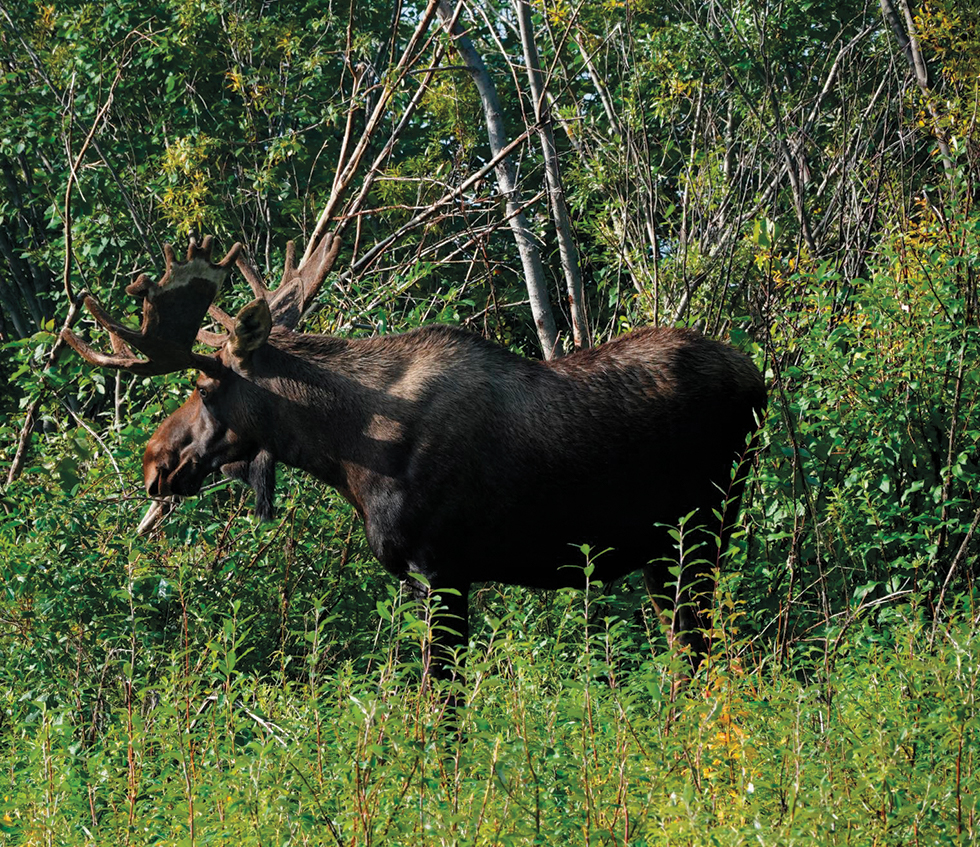
For more than two years, she mushed huskies, hunted caribou, tracked bears, and embraced the perspective of the nonhuman. Arctic communities have felt climate change for decades, she said. “Even when I first went north 20 years ago, people were saying, ‘You’re experiencing one of the last normal summers.’”
Demuth, an assistant professor of history and environment and society, has an Andrew Carnegie Fellowship to conduct research on the Yukon River, a vast multinational watershed stretching from Northern Canada to Alaska. Demuth explained that the Yukon is a perfect place to study how societies have historically related to the natural world and how they manage rights (say, to pollute upstream or catch salmon downstream) as climbing temperatures alter the landscape.
“So many political traditions overlap there — Indigenous nations, the Russian and British empires, the United States and Canada,” Demuth said. “All have or had ideas about how water or land, moose or geese, air or gold, should be stewarded and distributed and related to. How do we treat entities that are not people in our political decision-making? I think this question is particularly important now, as people around the globe deal with massive and continuing environmental change.”
As a summer research assistant for Demuth, Brown senior Zanagee Artis reviewed Indigenous people’s accounts about the increased dangers of fishing in winter, including drowning, from the Yukon River’s unpredictable ice thickness.
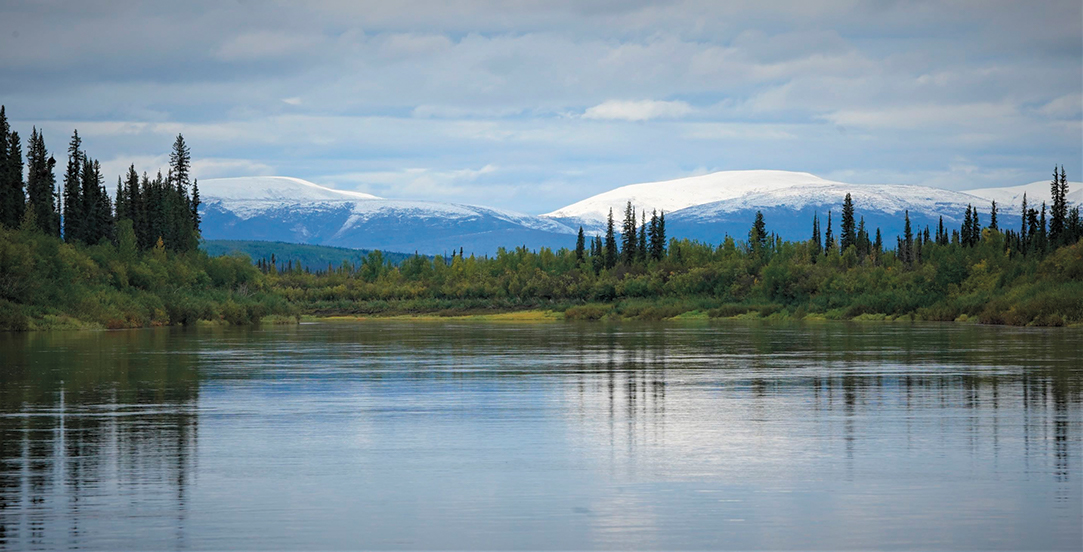
Artis, a climate justice advocate concentrating in political science and environmental studies, said that the courses he has taken with Demuth and other Brown faculty have strengthened his grasp of the scientific, legal, historical, social and political aspects of climate issues.
They’ve also heightened his appreciation of the Arctic: “Growing up, I viewed the Arctic as this place that is remote and empty,” Artis reflected. “But really, there’s so much life and culture there.”
Remedies for a crisis
Finding solutions is at the heart of Brown’s climate change work. In the fall of 2020 Brown launched the Climate Solutions Initiative to overcome obstacles to meaningful action on climate change through new and existing University-led efforts.
Locally, the initiative encompasses plans to bring together city officials, developers and clean-energy experts to reduce emissions in Providence, and to share lessons from Brown’s campus sustainability program with other universities. The Climate Solutions Initiative also seeks to catalyze results at the regional, national and global levels.
One project of the initiative is the Climate Solutions Lab, based at Brown’s Watson Institute for International and Public Affairs and established to stimulate collaborative scholarship among Watson social scientists in such climate-adjacent fields as energy, trade, and finance.
Advocating nonpartisan policy ideas on climate change through outreach with legislators, media outlets, and others is one way the lab makes an impact. “The idea is to get some of the policy recommendations that have been floating around academia into the hands of people who can take them further,” said lab leader Colgan, an energy policy expert.
New solutions-themed courses are on the rise, including Colgan’s Politics of Climate Change, which explores the economic and societal transformations needed to mitigate climate change — for example, placing tariffs on steel, glass and other carbon-intensive products coming into the European Union to push other countries to lower their emissions.
Colgan said that multiple students told him they appreciated the course’s positive approach. “All of their lives, they’ve been hearing the doom and gloom about climate change," he said. "This was the first time many of them were hearing about what we could do to address the problem.”
Colgan contributed his syllabus to the Climate Solutions Lab’s Syllabus Bank, a free resource to help university educators worldwide teach climate change courses. During its first year, it collected nearly 60 syllabi and had more than 2,000 downloads for such courses as Climate Geoengineering and Power, Justice, and Climate Change.
Class of 2021 graduate Kelly Raymond, who concentrated in political science, came up with her own solutions through her honors thesis on decarbonization in five U.S. states. She analyzed efforts to build support for renewable energy in Texas, Colorado, Nevada, and Iowa and applied those findings to Wyoming, a top coal producer with lots of open space for wind turbines.
Raymond concluded that the right communication — stressing potential job creation, for instance — is essential for securing local buy-in. “What has made me feel optimistic during such a politically polarized period,” she said, “is that there are ways to move the needle on decarbonization, and there are more people getting on board.”
Climate obstruction, exposed
The climate obstruction movement is another focus of cutting-edge research at Brown. Scholars say this complex network of companies, think tanks, and lobbyists has worked for decades to impede climate change progress by influencing policy and public opinion.
Detective work by IBES faculty and students has exposed some of the identities strategies, and funding sources behind this campaign, which sociologist J. Timmons Roberts, a professor of environmental studies and sociology, explained is supported by the fossil fuel industry and includes advocates for the utility, railroad and real estate industries.
Through the Climate Social Science Network, co-led by Roberts and Visiting Professor of Environment and Society Robert Brulle and headquartered at IBES, Brown scholars are now working with counterparts around the globe to pull back the curtain on climate change denial, delay, and disinformation.
When the pair created the international network in the fall of 2020 to spur and support collaborative research on climate obstruction, they imagined about 35 social scientists would join, yet within a year the group had swelled to 200 researchers in 22 countries.
One project underway is investigating the role of public relations spin in stalling real climate action. Others are examining topics like clean energy lobbying in U.S. statehouses, climate resistance strategies in Argentina and Brazil, and media coverage of wildfires in the United States, Canada and Australia.
Research informs policy
The Climate Social Science Network builds on Roberts’s trailblazing work with Brown students through the Climate and Development Lab, a hands-on policy course and think tank based at IBES.
Undergraduates with the lab conduct original research, produce op-eds and policy briefs, engage with legislators and other thought leaders on climate issues — even attend United Nations climate talks around the world.
Climate change is the defining crisis of our time. Brown is rising to the challenge. I see more students, staff and faculty every day getting motivated to do something and putting in the time to find answers and solutions.
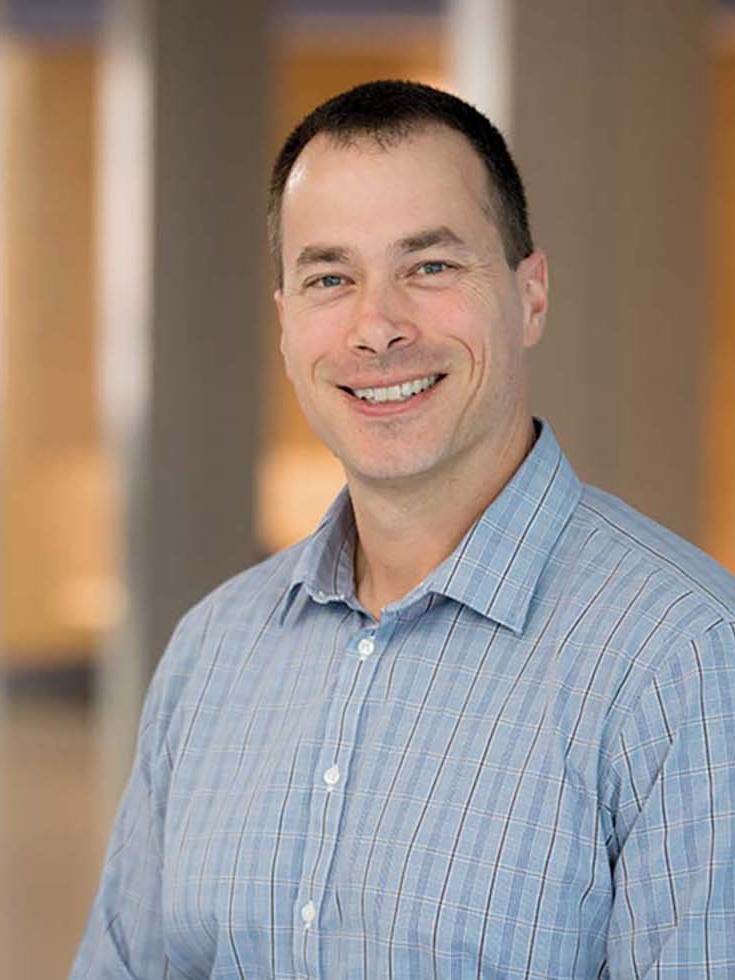
Class of 2018 graduate Kai Salem developed her environmental policy chops through the lab and other engaged scholarship at Brown, including advocating with Roberts and other students for carbon tax legislation in Rhode Island. These activities helped her realize that “I can walk down the hill to the Rhode Island State House and get involved to make a difference on climate policy here.”
Now policy coordinator for the Green Energy Consumers Alliance in Providence, Salem has pressed for several successful bills, including the 2021 Act on Climate (signed into law in April 2021) that commits Rhode Island to reducing greenhouse gas emissions to net zero by 2050. “These new mandatory targets have already brought a sense of urgency to state actions to address climate change,” she said.
Health on a warming planet
As climate change evolves, new avenues of study will emerge. IBES Interim Director Dov Sax, a professor of environment and society, said that the institute has begun collaborating with the Brown University School of Public Health to examine the consequences for health.
Global warming causes heat waves that can aggravate respiratory conditions. Extreme weather can hamper food production, leading to famines. Tropical mosquitoes migrating from the Caribbean to a warming United States threaten to introduce deadly diseases like dengue fever, not to mention the potential for climate-related pandemics.
“The climate change angle on human health is really understudied,” said Sax, who is also a professor of ecology and evolutionary biology. “We need to invest in understanding this.”
Actions speak louder
Studying what many consider an existential threat can be distressing, especially when the pace of climate solutions seems “glacial” compared to the torrent of weather disasters occurring, according to Colgan. “It’s frightening,” he said. “But I think the reality is that when we put our minds to it, humanity is capable of tremendous feats.”
Lynch sees climate change as a collection of many small problems.
“We don’t have to solve the whole thing in one bite," she said. "What I always say is, ‘It’s never too late, it can always be worse, and no action is too small.’ Because any action that keeps a kilogram of carbon dioxide out of the atmosphere is a good action.”
